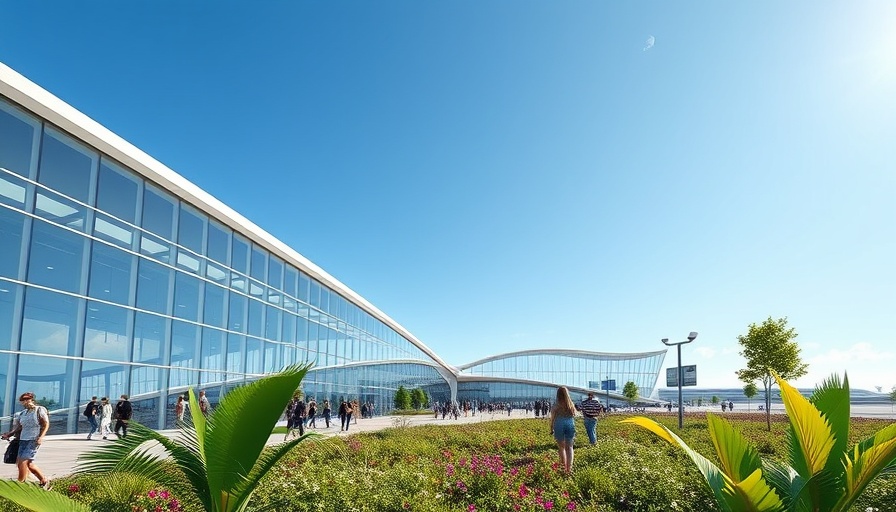
The Ongoing Dispute Between Southwest Airlines and San Antonio Officials
The battle between Southwest Airlines and San Antonio's city officials highlights pressing issues related to infrastructure, accessibility, and the competitive landscape of the airline industry. Southwest has expressed dissatisfaction with the terminal conditions at San Antonio International Airport, claiming they fall short of the expected standards for a modern airport facility. This disagreement arises amid a broader context of San Antonio's ongoing efforts to upgrade and improve its airport infrastructure, an initiative city leaders argue is both necessary and validated by court decisions.
Southwest Airlines' Position: A Claim of 'Substandard' Facilities
Southwest Airlines has labeled the facilities at San Antonio Airport as 'substandard,' presenting concerns about the ability to adequately serve passengers in a region that is both economically vital and experiencing growth. These allegations reflect the airline's focus on customer satisfaction and the necessity for infrastructure that can support modern travel demands. Witnessing rapid growth in Dallas's economic landscape, with a surge in tech startups and corporate relocations, there’s an increasing expectation for air travel services to match this momentum.
Response from San Antonio Officials: A Different Perspective
In response to the airline's claims, San Antonio officials assert that they have made significant strides in enhancing airport facilities and believe that the courts support their development initiatives. The discussion around the terminal conditions underscores a larger conversation about transportation services, regional competition, and the influence of infrastructure on economic growth. As San Antonio deals with concerns from Southwest Airlines, they remain committed to the city’s comprehensive airport improvement strategy.
The Importance of Infrastructure in a Growing Economy
Infrastructure investment is critical in sustaining economic growth, especially in cities like San Antonio, where the airport serves as a key transportation hub for commerce and tourism. With Dallas's growing corporate headquarters and vibrant economic climate, the expectations for convenient and reliable air travel have never been higher. San Antonio’s improvements to its airport not only aim to placate complaints from Southwest but are also essential for the city's competitive standing against other metropolitan areas. Airports often serve as the public face of a city's connectivity, impacting not just tourism but business relocation and investor interest.
Looking Ahead: The Future of San Antonio’s Airport Development
As the conflict unfolds, the implications of this disagreement may extend beyond just operational concerns. The outcome of Southwest’s complaints could influence future investments in airport infrastructure and broader economic development projects across San Antonio. With initiatives surrounding technological advancements in airports and customer experiences continuing to evolve, stakeholders on both sides will either have to come together or face the consequences of lingering discontent.
Key Takeaways for Travelers and Businesses
The ongoing legal and operational discussions surrounding San Antonio International Airport illustrate the critical need for modernized airport facilities, which can enhance traveler experiences and accommodate economic growth. For businesses and travelers alike, understanding these dynamics can provide insights into how regional airports are adapting to increased demands. Awareness of ongoing improvements can lead to better travel planning, influencing both corporate and individual travel decisions.
Final Thoughts: What’s Next for Airport Facilities?
The debate between Southwest Airlines and San Antonio's city officials raises essential questions about infrastructure investment and its impact on economic growth. As cities compete to attract business and tourism, maintaining modern and efficient airport facilities will be crucial. For residents and business owners in the Dallas area, this ongoing narrative serves as a reminder of how transportation infrastructure directly ties to local economic health and broader opportunities in the region. Understanding these developments can inspire informed dialogue around economic partnerships and public investments in transportation.
 Add Element
Add Element  Add Row
Add Row 



Write A Comment